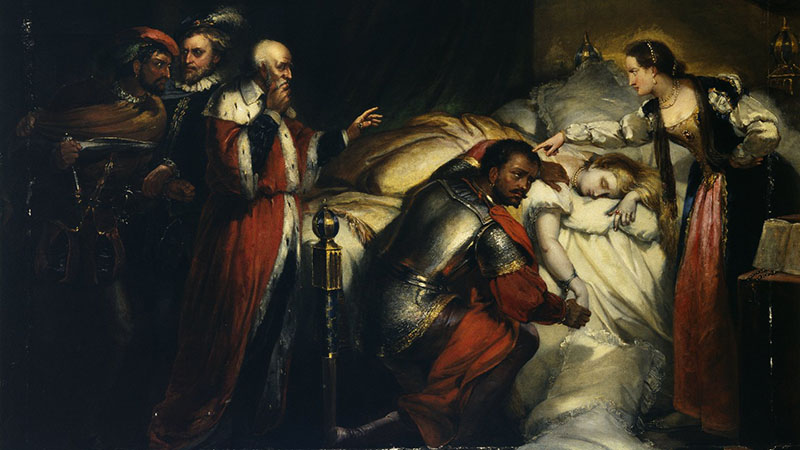Smith, Ian. "Race in Hamlet: The violent Black man myth." www.throughlines.org/suite-content/race-in-hamlet-the-violent-black-man-myth. [Date accessed].
Race in Hamlet: The violent Black man myth
A dissection of the "violent Black man myth" and its early deployment in Hamlet.

Race in the modern era has seen the circulation of the violent Black man stereotype that has been promoted through his criminalization in the “War on Drugs,” his overrepresentation in mass incarceration, and the deprivation of his life in extrajudicial shootings. Too often the recurrent theme and justification is that the Black man poses a threat, so criminalization, imprisonment, and death are offered as modern prevention strategies. How did we get here? Rather than try to tell a sociological story, we can examine one instance of this racial mythmaking in a widely studied, influential literary forebear: Shakespeare’s Hamlet.
Further learning
Recommended

Othello and Othello and Othello
Beginning with the play’s earliest performance, we study Othello from various critical perspectives through close analysis of the play-text and adaptations on film and stage. For several weeks students read the text of the play slowly and closely, paying particular attention to Shakespeare’s use of language, metaphor, genre, and dramatic form.

.jpg)




